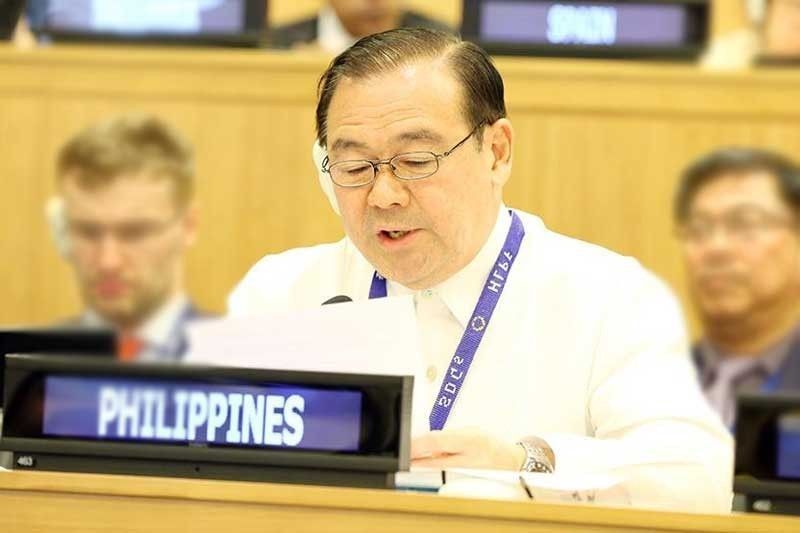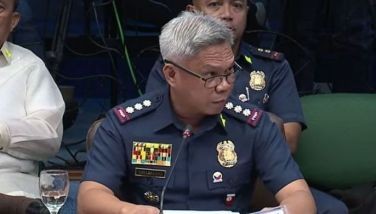The Philippines is not afraid of Chinese ‘debt trap’ — Teddy Locsin Jr.

MANILA, Philippines — The Philippines is not afraid of the so-called debt trap strategy of the Chinese government, according to Foreign Affairs Secretary Teodoro Locsin Jr.
Speaking at the Hungarian Institute of Foreign Affairs and Trade during his official visit to Hungary on Thursday, Locsin said the Philippines has experienced worse in the past under the Western financial system.
“The West went into paroxysms of ecstasy over our people power revolution, which was a rebuke to communism as a way forward,” he said, referring to the 1986 People Power Revolt that toppled the Marcos dictatorship.
“Still the West threatened our new democracy with financial destruction if it did not pay back every dollar lent by Western banks to the dictatorship which stole every cent of it. Democratic victory was good for a pat on the back, but not good enough for debt forgiveness,” he added.
Billions of loans were made by the Marcos government during the 21-year regime, with think tank Ibon Foundation saying that the country would continue to pay for these debts until 2025.
Several groups earlier warned the Duterte administration against accepting loans from China, noting the experience of countries such as Sri Lanka which had fallen into the so-called “debt-trap” strategy of Beijing.
In his lecture, Locsin also said the Philippines under the Duterte administration was able to manage its disagreements with China over territories in the South China Sea.
He said the government was able to do so “without retreating an inch from our rightful and inalienable ownership of everything within the widest extent of our sovereign reach in history and international law.”
Locsin did not discuss recent activities of China in the disputed region, including the construction of various facilities in features within the Philippines’ exclusive economic zone.
The secretary, however, recognized that there are continuing disputes and differences in the region, not only with China but with other claimant states such as Vietnam and Taiwan.
“Hungary experienced the same losses of its historical territorial extent. But, as I said standing beside the Chinese foreign minister, ‘these differences need not stand in the way of mutually beneficial cooperation in other areas of common endeavor,’” added Locsin.
Enemy to enemies
Locsin said he has discarded the “friend to all, enemy to none” policy pursued by his predecessors in the Duterte administration.
He said the Department of Foreign Affairs has moved on from the “trusting attitude” exhibited in the past to adapt to changing realities of international affairs.
“So in my watch I refined our foreign policy to ‘friend to friends, enemy to enemies, and a worse enemy to false friends,’” he added, without indicating who these “false friends” are.
Locsin, however, reiterated the so-called “independent foreign policy” pursued by President Duterte since assuming office in 2016.
“When I first addressed our foreign ministry on my assumption of office, I told them how a truly independent foreign policy should be pursued,” recalled the foreign affairs secretary, the third to serve under the present administration.
“It is not independent foreign policy if you simply switch the master before whom you are kneeling. You are still on your knees before another master. An independent foreign policy means getting off your knees and on your feet – and standing up for your country. That is true independence,” he noted.
And while the Philippine Constitution renounces war as an instrument of national policy, Locsin said it only refers to offensive war and never to national defense.
- Latest
- Trending

































